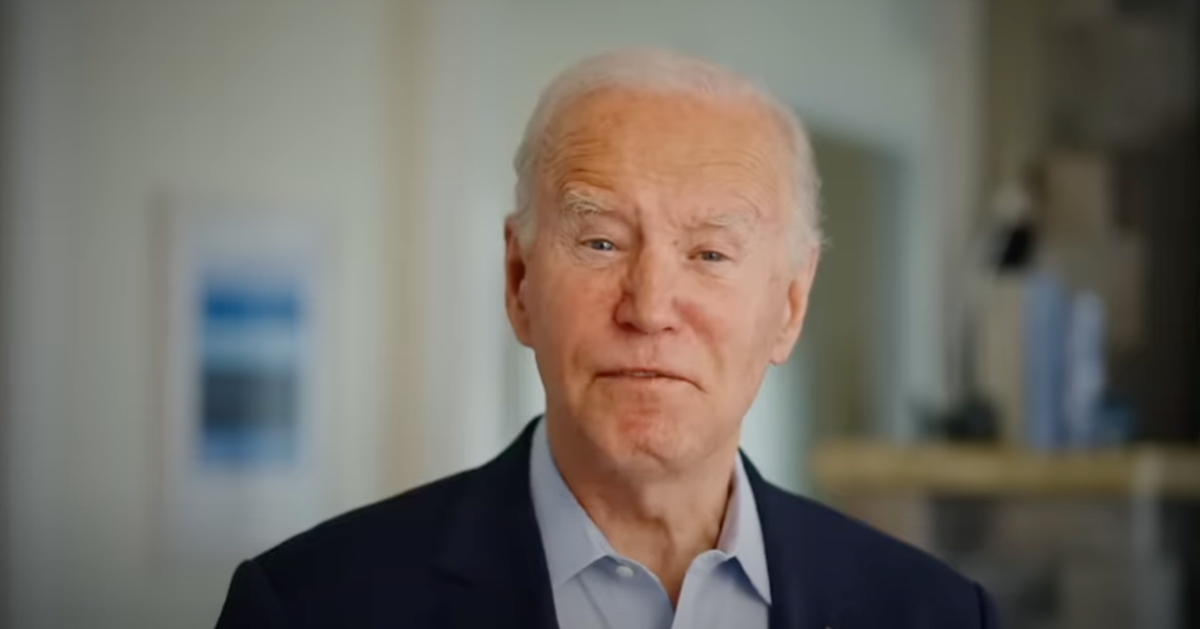Report: Biden Administration Returns Deportees From Trump Era To U.S.
The Biden administration has quietly shifted immigration policy by reintroducing certain deported individuals from Cameroon, whose asylum applications had previously been rejected, back to the United States, Breitbart reported.
The Department of Homeland Security's recent actions target Cameroonians deported during the Trump era, addressing concerns over their treatment upon return to Cameroon.
Under the Trump administration, between 2019 and 2021, approximately 80 to 90 Cameroonians were deported after their asylum claims were denied. These decisions were made amidst strict immigration policies that aimed to decrease the number of asylum seekers accepted into the U.S.
Reinstatement in Light of Human Rights Concerns
Recent developments come in the wake of a report by Human Rights Watch published in February 2022, which detailed serious allegations of abuse faced by these deportees at the hands of the Cameroonian government. This report has prompted a reassessment of their cases by the Department of Homeland Security (DHS).
The Biden administration's response via DHS has not been formally announced, making the program's details and scope something of a revelation. It was uncovered through internal memos and discussions with staff from Immigration and Customs Enforcement (ICE).
This program is notably rare but not without precedent. A similar initiative was briefly seen in December 2021 when two Haitians were allowed to return under comparable circumstances.
Secretary Mayorkas Highlights Commitment to Justice
DHS Secretary Alejandro Mayorkas has emphasized that this move aligns with the Biden administration's broader goals of ensuring equity and justice for migrants. According to Mayorkas, these values are central to the mission of DHS under his leadership.
The reintroduction of these Cameroonians involves logistical challenges and legal nuances, given that their initial asylum claims were rejected. The administration's decision signals a significant shift in approach and possibly, a reevaluation of asylum protocols related to human rights concerns.
Moreover, the program underscores a departure from the previous administration's stringent immigration policies, reflecting a potentially more compassionate stance towards individuals facing severe repercussions in their home countries.
Implications for U.S. Immigration Policy
The reinstatement of these individuals could have broader implications for the U.S. immigration system, particularly concerning how asylum claims are evaluated in the context of human rights reports.
Furthermore, this situation raises questions about the transparency of such immigration policies, especially considering that this program was not initially disclosed to the public. The lack of transparency could affect public trust in immigration procedures and the administration's policy-making process.
While the exact number of Cameroonians who will benefit from this policy remains uncertain, the impact of their return on their lives and U.S. immigration policy will likely be significant, prompting discussions on both national and international stages.
Broadening Horizons for Asylum Seekers
By revisiting cases affected by alleged human rights violations, the U.S. may be setting a precedent for other nations, demonstrating a commitment to reevaluating deportee situations on humanitarian grounds.
This change could influence how other countries handle deportations and asylum requests, especially in cases where returnees face potential harm or mistreatment.
The re-entry of these Cameroonians not only affects the individuals and their families but also potentially sets a standard for the treatment of asylum seekers and deportees worldwide.
Looking Ahead: Immigration and Human Rights
As this program unfolds, it will be closely watched by advocates and critics alike, who are keen to understand its ramifications on the broader immigration landscape and its alignment with international human rights standards.
The DHS and the Biden administration will need to navigate the complex interplay of international relations, domestic policy, and human rights advocacy as they continue to implement this unprecedented program.
The ongoing developments in this story will undoubtedly contribute to the evolving narrative of U.S. immigration policy in the post-Trump era, where issues of equity and justice remain at the forefront.
In conclusion, the Biden administration’s initiative to return deported Cameroonians who faced mistreatment highlights a shift in U.S. immigration policy towards a more humanitarian approach. This story, though not widely publicized, underscores the administration's commitment to justice and equity, possibly reshaping future asylum evaluations and immigration practices.






